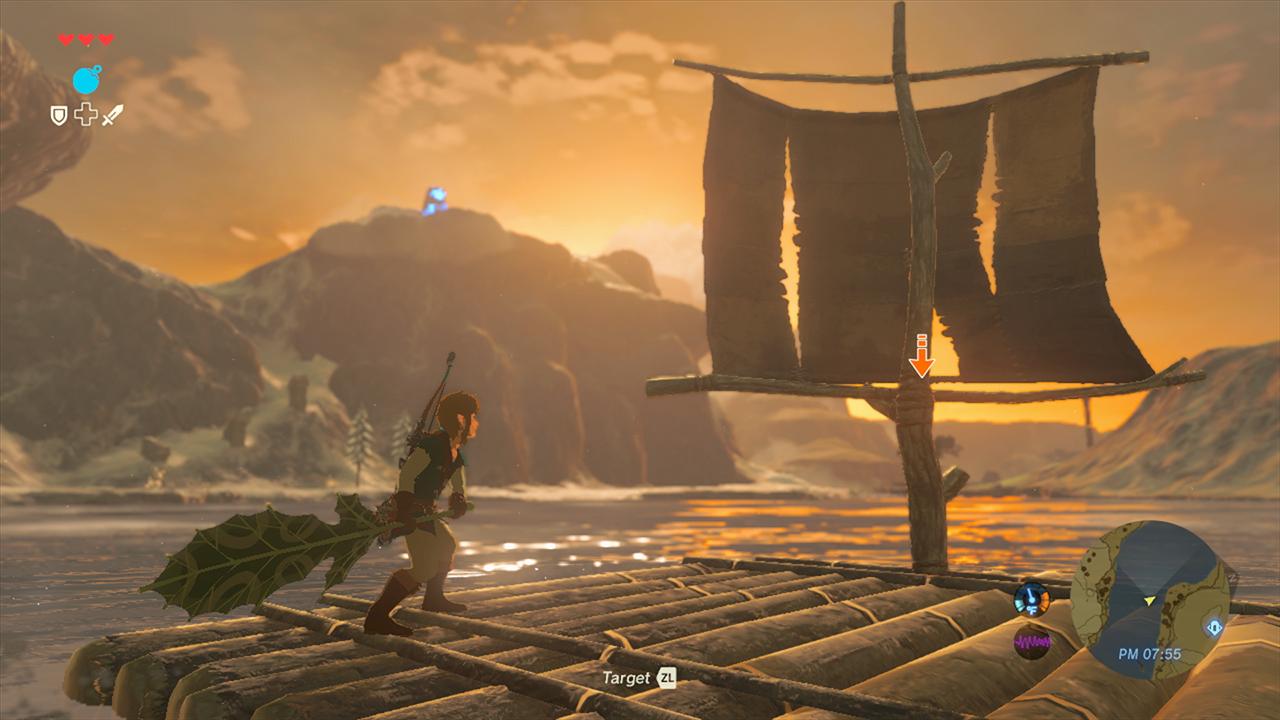EVERYTIME we log into Twitter there is always someone with the ‘hot take’ that The Legend of Zelda: Breath of the Wild isn’t as good as everyone says it is.
It sold around 28million copies as of late last year, and is one of the highest-rated games of all time.

Six years on it’s still fantastic.
Those stats don’t really matter though, because even if it had only sold 28k copies, it’d still be a really, really good game.
With Tears of the Kingdom fast approaching, it seems that this conversation is more rampant than ever.
However, most of these arguments feel disingenuous. Do all these people think BOTW is bad, or are they just trying to be edgy and contrarian?
There are common complaints. People say the world is empty, it has no story, and that the dungeon designs are lacking.
There are some valid points here, and while we don’t agree, we can understand the issues people face.
One common complaint comes up again and again, and it shows the people playing have no sense of game design.
That is weapon degradation. People don’t like that Link’s weapons break down over time.
We get that it can be disheartening to see a powerful weapon you searched hard for shatter into pieces, but it’s important to look at the bigger picture.
When you are rewarded with a powerful weapon, it doesn’t matter how many swords you have up your sleeve, the prize doesn’t feel as big when you know it’s fleeting.
The thing is, right around the corner, there will be another weapon to find, more powerful than before.
You don’t have to hoard and protect your best kit, because soon something will come along to eclipse it.
This happens in most RPGs as you go from one area to the next, each weapon you receive is bigger and better than before.
With degradation, you don’t have to wait for a shop to dump all your useless weapons, they just disappear like magic.
There are issues with it. Many of the enemies need to be humanoid so that they provide weapons for you to steal.
This means that there’s less variety compared to other Zelda games, but combat has been expanded to make up for it.
If you are truly ever stuck, remember that Link is given infinite bombs before he ever leaves the Great Plateau.
These can be used to blow weapons out of enemy hands and turn the tide of battle.
With each weapon that breaks, tensions rise, and the satisfaction when you finally succeed is all the sweeter for it.
Previously in Zelda games combat was more of a puzzle-solving exercise than a skill.
You find the right combination of dodges, parries and blocks before you move in for the kill.
These bosses may feel more memorable, but once you have figured out the trick, there’s not much on offer for repeated playthroughs.
In general, the puzzles in BOTW are much more confined than those in previous games. This is because BOTW is more open, dynamic, and this is where moments and memories are made.
The downside of this is that the story feels disjointed, and there are essentially five of them to follow.
It’s hard to find a story that is told in fragments engaging, but the real story is the journey and traversal of the open world.
The Divine Beasts are the largest dungeons, and offer something new for Zelda players, but if you want a more traditional experience, you can always try one of the many shrines.
The exploration that makes the traditional shrines so enjoyable can be found here in the overworld. Let’s face it, not all of Zelda’s previous dungeons have been great.
Fans complained that the reward for collecting all the Korok Seeds is a shining turd, but if we forget the poop, the reward is figuring out how to get it.
Each mountain you climb or puzzle you solve is a reward in itself. You can trade them for inventory space, but really it’s about sating your curiosity.
BOTW lets you be the narrator of your own story. Its true rewards come from the sense of satisfaction you gain.
Where you go and what you do is all down to you, with few landmarks to guide your way.
Six years on there are few games that capture that same feeling as BOTW did, and if TOTK is half as creative, it will still be the Game of the Year.
Written by Dave Aubrey and Georgina Young on behalf of GLHF.






